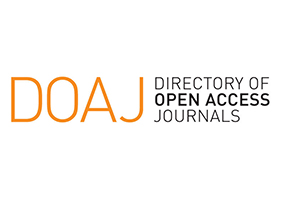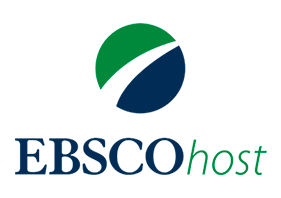Self-regulation and strategies of learning in students’ workers in continuing studies
DOI:
https://doi.org/10.33304/revinv.v19n2-2024002Abstract
The purpose of this research is to demonstrate self-regulation and learning strategies in worker students. A sequential mixed research methodology is used, in whose quantitative stage the MSLQ questionnaire is applied in its learning strategies construct to 65 engineering students from a continuing studies program. In the qualitative stage, the 16 top-ranked students are selected and semi-structured interviews are conducted to deepen their learning strategies. It is concluded that strategies related to elaboration and metacognition, organization and seeking help are relevant factors in their self-regulatory processes to make work and study compatible. The results also highlight the social factor of learning and the applicability of learning to work. It is expected to provide important information on the strategies used to guide coherent and dialogic educational processes with the needs of students who reconcile academic and work life.
Downloads
References
Barría, N., Montilla, M., Ortiz, N., Cano, N., & Cortes, S. (2020). Factores que promueven la procrastinación y afectan el rendimiento en estudiantes de ingeniería. Revista de Iniciación Científica, 6, 89-94. https://doi.org/10.33412/rev-ric.v6.0.3135
Burgos Castillo, E. & Sánchez Abarca, P. (2012). Adaptación y validación preliminar del cuestionario de motivación y estrategias de aprendizaje (MSLQ) [Degree project, Universidad del Bío-Bío]. Repositorio Digital Sistema de Bibliotecas Universidad del Bío Bío. . http://repobib.ubiobio.cl/jspui/handle/123456789/1544
Busso, M. & Pérez, P. E. (2015). Combinar trabajo y estudios superiores ¿Un privilegio de jóvenes de sectores de altos ingresos? Población y Sociedad, 22(1), 5-29. https://biblat.unam.mx/es/revista/poblacion-sociedad/articulo/combinar-trabajo-y-estudios-superiores-un-privilegio-de-jovenes-de-sectores-de-altos-ingresos
Cabanach, R. G., Souto-Gestal, A., & Franco, V. (2016). Escala de estresores académicos para la evaluación de los estresores académicos en estudiantes universitarios. Revista Iberoamericana de Psicología y Salud, 7(2), 41-50. http://dx.doi.org/10.1016/j.rips.2016.05.001
Capote, G. E., Rizo, N., & Curbelo, L. M. (2023). La autorregulación del aprendizaje en el proceso de formación del Ingeniero Industrial. Revista Conrado, 19(90), 365-377. http://scielo.sld.cu/scielo.php?script=sci_abstract&pid=S1990-86442023000100365&lng=pt
Chong, E. (2017). Factores que inciden en el rendimiento académico de los estudiantes de la Universidad Politécnica del Valle de Toluca. Revista Latinoamericana de Estudios Educativos, 47(1), 91-108. http://dx.doi.org/10.48102/rlee.2017.47.1.159
Franco-Rojas, N. & López-Jara, N. (2021). Estrategias de aprendizaje y estudio en estudiantes universitarios de la Facultad de Ciencias Económicas de la UNA, según ocupación laboral. Año 2019. Población y Desarrollo , 27(53), 88-100. https://doi.org/10.18004/pdfce/2076-054x/2021.027.53.088
Gaeta, M. L., Cavazos, J., Cabrera, M., & del Rosario, L. (2017). Habilidades autorregulatorias e higiene bucal infantil con el apoyo de los padres. Revista Latinoamericana de Ciencias Sociales, Niñez y Juventud, 15(2), 965-978. https://doi.org/10.11600/1692715X.1521109022016
Masso, J., Romero, M., Fonseca, L., & Gallego, A. (2021). Cuestionario de motivación y estrategias de aprendizaje forma corta – MSLQ SF en estudiantes universitarios: Análisis de la estructura interna. http://hdl.handle.net/11371/4215
Núñez, J. C., Solano, P., González-Pienda, J. A., & Rosário, P. (2006). Evaluación de los procesos de autorregulación mediante autoinforme. Psicothema, 18(3), 353-358. https://reunido.uniovi.es/index.php/PST/article/view/8441
Pintrich, P. R., Smith, D. A., García, T., & McKeachie, W. J. (1993). Reliability and predictive validity of the motivated strategies for learning questionnaire (MSLQ). Educational and Psychological Measurement, 53(3), 801-813. https://doi.org/10.1177/0013164493053003024
Ramírez Dorantes, M., Canto, J. E., Bueno Álvarez, J. A., & Echazarreta Moreno, A. E. (2013). Validación psicométrica del Motivated Strategies for Learning Questionnaire en universitarios mexicanos. Electronic Journal of Research in Educational Psychology, 11(1), 193-214. https://doi.org/10.25115/ejrep.v11i29.1563
Torrano, F., Fuentes, J. L., & Soria-Oliver, M. (2017). Aprendizaje autorregulado: Estado de la cuestión y retos psicopedagógicos. Perfiles Educativos, 39(156), 160-173. http://dx.doi.org/10.22201/iisue.24486167e.2017.156.58290
Urquijo, A., del Valle, E., & Salvo, C. (2014). Estrategias de aprendizaje en educación superior en un modelo curricular por competencias. Revista de la Educación Superior, 43(172), 123-144. https://dx.doi.org/10.1016/j.resu.2015.03.012
Vásquez Córdova, A. S. (2021). Learning strategies of university students as predictors of their academic achievement. Revista Complutense de Educación, 32(2), 159-170. https://doi.org/10.5209/rced.68203
Vera, F. (2021). Competencias blandas para la fuerza laboral del siglo XXI. Transformar, 2(2), 20-29. https://typeset.io/papers/competencias-blandas-para-la-fuerza-laboral-del-siglo-xxi-34orl1av92
Downloads
Published
How to Cite
Issue
Section
License

This work is licensed under a Creative Commons Attribution-NonCommercial-ShareAlike 4.0 International License.
This journal provides immediate free access to its content under the principle of making research available to the public free of charge, which fosters a greater exchange of global knowledge. This work is under a Licencia Creative Commons Atribución-NoComercial-CompartirIgual 4.0 Internacional (Creative Commons Attribution-NonCommercial-ShareAlike 4.0 International License) However, any request by the author to obtain permission for their reproduction will be evaluated.











